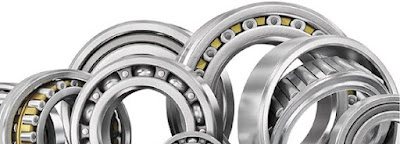What to ignore when ordering bearings
Ordering bearings can be a complex process that requires careful consideration of various factors such as size, material, and load capacity. However, it's equally important to know what to ignore when ordering bearings. With the abundance of information available online, it can be challenging to separate the essential from the peripheral. Making incorrect assumptions or overlooking certain aspects can lead to costly mistakes, delayed projects, and even safety hazards. Therefore, in this blog post, we'll discuss some of the factors that you should ignore when ordering bearings, helping you make informed decisions and avoid unnecessary complications.
It's vital to note that the selection process for bearings should be based on specific requirements and operational conditions. Overemphasizing one factor and neglecting others can result in ineffective or inadequate performance. Some of the factors that should not be given excessive attention include the branding, price, and packaging. While these factors may be important in other purchasing decisions, they should not be the primary guide for bearing selection. Instead, you should focus
1. Ignore the lowest price: High-quality bearings are worth the investment.
When it comes to ordering bearings for your machinery or equipment, it's important to keep in mind that the lowest price doesn't always equate to the best value. High-quality bearings are worth the investment, as they offer several benefits that lower-grade bearings simply can't match. They're typically made with superior materials and production methods, resulting in greater durability, better load-carrying capacity, and longer service life. While it may be tempting to opt for the cheapest bearings you can find, this approach can ultimately cost you more in the long run due to frequent replacements, reduced productivity, and potential damage to your equipment. Therefore, it's crucial to prioritize quality over price when considering what type of bearings to order.
2. Ignore the "one-size-fits-all" approach: Make sure the bearing fits your specific application.
When ordering bearings, it's important to remember that the "one-size-fits-all" mentality does not apply. The bearing you choose must be specific to your application. It may be tempting to assume that any bearing that has the right dimensions to fit into the space you need filled will suffice, but this is not the case. If the bearing is not suitable for the specific application in which it will be used, you may experience premature bearing failure, which can be costly and potentially dangerous. When selecting bearings, it's important to consider factors such as load capacity, speed capability, temperature range, and lubrication requirements. By ignoring the "one-size-fits-all" approach and taking the time to choose the right bearing for your specific application, you can ensure optimal performance and longevity.
3. Ignore the supplier's reputation: Do your own research and choose a reliable supplier.
When it comes to ordering bearings, one of the most common mistakes buyers make is to ignore the supplier's reputation. While it may seem convenient to choose the first supplier that appears in your search results, doing so can put your project at risk. Instead, it is crucial to conduct your own research before making a final decision. Look for suppliers with a proven track record of delivering high-quality products and exceptional customer service. A reliable supplier should be able to provide you with detailed information about their products, including technical specifications and pricing. They should also be open to answering any questions you may have, and willing to provide references from satisfied customers. By taking the time to research potential suppliers, you can ensure that you are working with a trustworthy partner who is committed to your success.
4. Ignore the importance of lubrication: Proper lubrication is important for bearing performance.
When ordering bearings, many people make the mistake of ignoring the importance of proper lubrication. However, it is crucial to understand that proper lubrication is crucial for optimal and long-lasting bearing performance. Lubrication helps to reduce friction, heat, and wear in the bearing, thereby enhancing its effectiveness and durability. Without effective lubrication, the bearing components will experience excessive wear and tear, leading to premature failure, increased downtime, and higher maintenance costs. To ensure that you get the most out of your bearings, it is essential to consider the type and amount of lubrication required based on the bearing manufacturer's recommendations and your specific application's operating conditions. So, don't ignore the importance of proper lubrication when ordering bearings, as it could significantly impact your equipment's performance and reliability.
5. Ignore the maintenance requirements: All bearings require maintenance, make sure you're prepared to provide it.
When ordering bearings, it's essential to be well-informed about the different types and specifications available. However, it's equally important to know what to avoid. One common mistake is to ignore the maintenance requirements of the bearings. All bearings require regular maintenance to ensure they operate efficiently and have an extended lifespan. By ignoring or neglecting these requirements, you risk damaging the bearings, causing premature failure or reducing their performance. Therefore, it's crucial to be prepared to provide the necessary maintenance for the bearings you purchase, whether that means lubrication, cleaning or other upkeep measures. Make sure you have the expertise, resources and tools required to maintain your bearings and achieve the best results for your applications.
To conclude, when ordering bearings, it's important to have a clear understanding of your application's requirements and specifications, as well as a reliable supplier that you trust. While there may be common misconceptions or false claims about certain features or characteristics of bearings, it's important to focus on the factors that are relevant to your specific application and not be swayed by irrelevant marketing tactics. By taking the time to do your own research and relying on trusted resources, you can make informed decisions and ensure that you're getting the right bearings for your needs.



Megjegyzések
Megjegyzés küldése